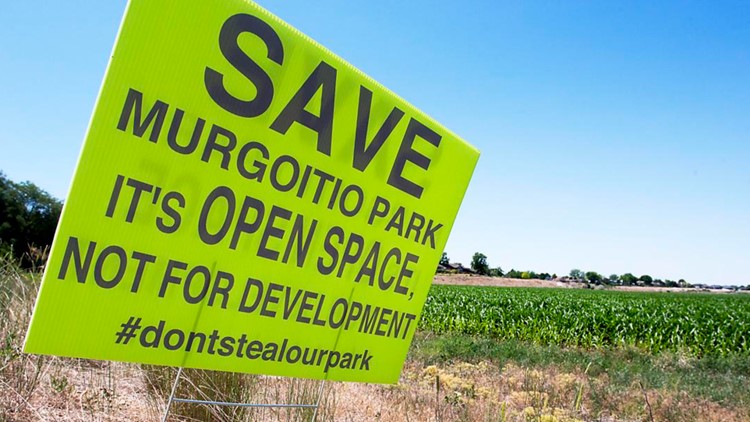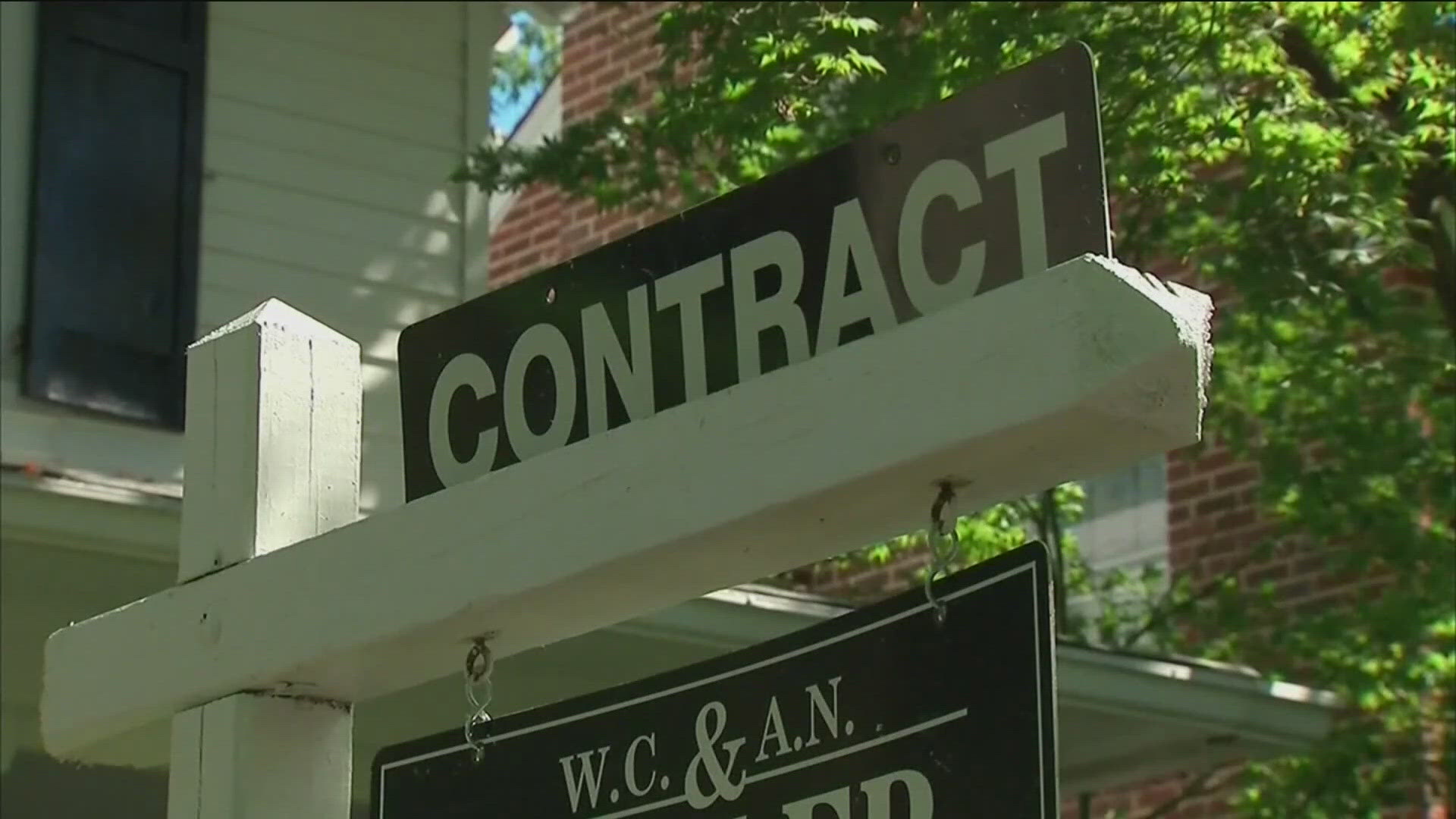BOISE, Idaho — Editor's Note: This article was originally published by the Idaho Press.
Public outcry over a land swap deal that would eliminate a long-planned park south of Boise has brought new attention to a decades old problem for the city: annexing the southwest.
Last month, the Idaho Press reported that Southwest Boise residents oppose a deal to annex the 160-acre Murgoitio Park property on South Cole Road — first proposed as a park more than two decades ago — and trade it to developer Harris Ranch Limited in exchange for land in the southeast foothills. City staff says there's no way to fund such a large park in that area in the foreseeable future, and Boise City Council members, who will ultimately decide what to do with the park land, are still weighing their options.
In the meantime, they're mulling over a wider problem that dates back to the 1970s. Questions from residents about whether the city could annex all of Southwest Boise spurred a Tuesday presentation during a city council work session, when Boise Parks Superintendent Jennifer Tomlinson explained the challenges such a move would present.
"This is probably one of the stranger … parts of the city's history, how this has gone on and how long it's gone on," Tomlinson told the Idaho Press.
Southwest Boise — an area south of Victory Road and west of Orchard Street — is home to more than 34,000 residents, who live outside city limits, in Ada County. The majority are hooked up to city sewer, because Boise expanded sewer service to the area in the 1970s, due to widespread septic failure, and continued to do so through the 1990s, ultimately investing $10 million.
In the following decades, annexation attempts in the area were met with push back by residents. In 2004, Boise annexed about 2,000 parcels north of Victory Road and south of Interstate 84, which triggered multiple lawsuits and took several years to complete. The city hasn't attempted a large annexation in the area since.
That's because Southwest Boise is already developed and heavily populated, and the city would be expected to provide services — police, firefighters, libraries and parks — immediately upon annexation, without first collecting revenues to fund the cost of expanding services.
"A lot of that stuff comes through impact fees when development happens," said Councilman Jimmy Hallyburton. "To try to do those things retroactively, there’s just a lot of challenges there to find the funding that’s needed."
For similar reasons, the city does not have dedicated funding for the Murgoitio park land, city officials say. A series of "compounding deficiencies," including a lack of dedicated impact fees and private funding for the park, led the city to propose trading the land to a developer, Tomlinson said.
After purchasing the Murgoitio land in 1993 and later targeting it for a park, the city declined to include Murgoitio Park in its capital improvement plan, a document that helps to calculate how much impact fees will be needed to fund projects. In order for a project to be funded through impact fees, it must be included in the capital improvement plan, which is updated every five years. Boise historically has not developed parks outside city limits, Tomlinson said.
"It’s a chicken and egg thing," she said.
Boise has collected about $10.5 million in park impact fees in Southwest Boise since 1997. That money was used to fund improvements at Molenaar and Peppermint parks, two southwest Boise neighborhood parks that total 27 acres, and to fund regional park improvements in other areas of the city.
The cost to develop a regional park — one meant to serve the entire city, not just a neighborhood — is much greater. Just to green-up the property — installing grass, irrigation, parking and pathways — would cost up to $35 million. That doesn't include installing amenities, such as baseball and soccer fields. Similar regional parks, such as the Optimist Youth Sports Complex, were helped by funding from private donors.
"You’ve got a piece of land that wasn’t donated … and you don’t have a large donor who is coming in to help the development…" Hallyburton said of Murgoitio.
City council members have yet to publicly indicate whether they will support the land swap. A resolution that would have removed a property covenant preventing residential development on the site was scheduled for consideration at next Tuesday's council meeting, but that has been delayed, likely until August. Meanwhile, the city is awaiting a valuation of the two properties.
Ryan Suppe is the Boise City Hall and Treasure Valley business reporter for the Idaho Press. Contact him at 208-344-2055 (ext. 3038). Follow him on Twitter @salsuppe.
Watch more 'Growing Idaho':
See the latest growth and development news in our YouTube playlist:



